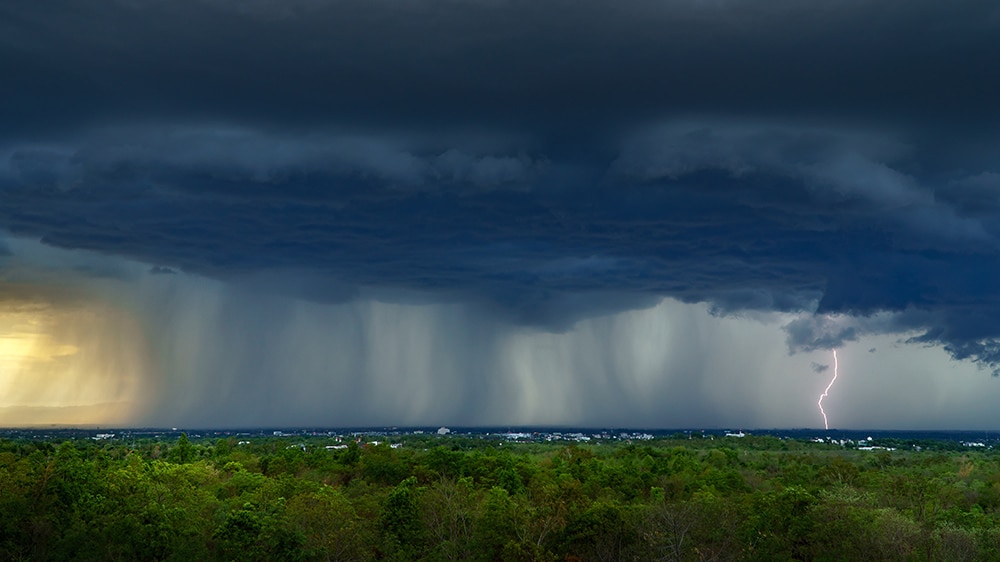
The Midwest is no stranger to severe weather. Rain, snow, wind and extreme temperatures can interfere with some internet connections, especially in rural areas. While fiber-optic internet typically does not experience disruptions from inclement weather, other common rural internet services like fixed wireless and satellite can more easily be affected. Learn how different weather conditions affect your internet and how to minimize the disruptions.
How Weather Affects Different Types of Internet Connections
Fixed Wireless Internet
Rain, strong winds, snow and ice can sometimes interfere with fixed wireless signals, potentially causing interruptions or slower speeds. If high winds knock down trees or blow debris in the path between your home and the tower, your connection could be affected.
Satellite Internet
Satellite connections are particularly vulnerable to rain, fog, snow and wind, which can shift or damage the dish. Even in fair weather, cloud cover can block the signal from outer space from reaching your home.
Fiber-Optic Internet
Fiber is the most resilient internet connection compared to other services. In most cases, the fiber-optic cables are underground and insulated, protecting them from the weather. Above-ground cables can be damaged if trees fall on them, but the light signals that transmit data aren’t affected by rain or lightning. However, if you lose power, you’ll lose your internet connection as well.
Can Rain Affect Internet Speed?
During torrential downpours, heavy rainfall can interfere with radio signals used in fixed wireless and satellite systems in a phenomenon called “rain fade.” This can significantly slow down internet speeds or even knock out the service completely.
How Snow, Ice, and Wind Can Affect Internet Speeds
Heavy amounts of snow and ice can block signals by accumulating on fixed wireless receivers or satellite dishes. Wind can knock wireless equipment or satellite dishes out of alignment, which will affect your internet speed.
Does Extreme Heat or Cold Affect Internet Speeds?
High temperatures can cause routers and modems to overheat, potentially slowing down connections. Cold weather may not directly impact Wi-Fi but can damage outdoor equipment and cables. Ice buildup on exterior infrastructure can also affect performance.
What You Can Do to Minimize Weather-Related Internet Issues
- Choose the Right Internet Type: Fixed wireless and fiber-optic internet are more resilient options than satellite.
- Weatherproof Equipment: Make sure wireless receivers or dishes are secure to your home, and consider investing in a protective cover for your satellite dish.
- Regular Maintenance: If accessible, clean outdoor equipment to remove debris and snow.
- Backup Power Supply: Use an uninterruptible power supply (UPS) to prevent service outages during storms.
Get Reliable Internet, Rain or Shine, with Mercury Broadband
Are you tired of your internet going out whenever the weather turns south? Mercury Broadband’s resilient fiber internet services can stand up to anything Mother Nature throws its way. Plus, our local team of technical specialists is standing by to help you if your connection is interrupted.
Explore our plans and see what services are available in your area to discover how Mercury can keep you connected.
